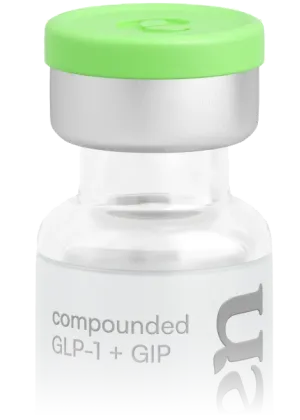Tirzepatide Without Insurance: Options & Costs
Considering tirzepatide without insurance? Learn access options, what providers check, total costs, safety/follow-up, and the key questions to ask first.
Can you still get compounded tirzepatide? Understand current FDA guidance, patient access, and what providers recommend before starting treatment.
The FDA’s decision to resolve tirzepatide’s shortage in late 2024 has reshaped access to compounded formulations. By early 2025, most compounding pharmacies were no longer permitted to produce tirzepatide unless for patients with specific, documented medical needs.
This article explains how compounded tirzepatide fits into today’s regulatory environment, the FDA’s stance on compounding, and what patients should know about legal access pathways.
Disclaimer: Compounded tirzepatide has not been reviewed by the FDA for safety, effectiveness, or quality. It may only be prescribed when a healthcare provider determines that FDA-approved alternatives are not suitable for a specific patient.
Compounded tirzepatide refers to pharmacy-prepared formulations made in response to individual patient needs. These are not FDA-approved and differ from commercially manufactured medications such as Mounjaro® and Zepbound®.
Licensed pharmacists may prepare compounded versions only when a prescriber documents that a patient requires a meaningful difference, such as avoiding allergens, adjusting dosage strength, or altering delivery format.
{{primary-cta}}
Patients may encounter compounded tirzepatide only under narrow circumstances, such as:
For most patients, access is now through FDA-approved prescriptions. Providers can also help patients explore financial support programs that lower costs of brand-name medications.
{{primary-cta}}
When the FDA declared the tirzepatide shortage was over, it also restricted most compounding of the medication. As of March 19, 2025, compounded versions may only be prescribed when a provider determines a clinically significant difference for a specific patient.
Patients now have reliable access to FDA-approved tirzepatide through traditional prescriptions and LillyDirect self-pay options. Compounded tirzepatide may still be available in rare situations, but the safest option is to use an FDA-approved medication prescribed by your doctor.
Disclaimer: The FDA does not approve compounded medications for safety, quality, or manufacturing. Prescriptions and a medical evaluation are required for certain products. The information provided on this blog is for general informational purposes only. It is not intended as a substitute for professional advice from a qualified healthcare professional and should not be relied upon as personal health advice. The information contained in this blog is not meant to diagnose, treat, cure, or prevent any disease. Readers are advised to consult with a qualified healthcare professional for any medical concerns, including side effects. Use of this blog's information is at your own risk. The blog owner is not responsible for any adverse effects or consequences resulting from the use of any suggestions or information provided in this blog.
Eden is not a medical provider. Eden connects individuals with independent licensed healthcare providers who independently evaluate each patient to determine whether a prescription treatment program is appropriate. All prescriptions are written at the sole discretion of the licensed provider. Medications are filled by state-licensed pharmacies. Please consult a licensed healthcare provider before making any medical decisions.
Yes, but only in rare cases. It may only be prescribed when a provider documents a clinically significant difference compared to FDA-approved medications.
No. Compounded tirzepatide has not been reviewed by the FDA for safety, effectiveness, or quality.
Tirzepatide activates both GLP-1 and GIP receptors, while semaglutide targets GLP-1 only. For a closer look at how tirzepatide is typically prescribed, see our Tirzepatide Dosage Chart.
Yes. The FDA has reported hundreds of adverse events and discovered fraudulent compounded GLP-1 products with false labels.


